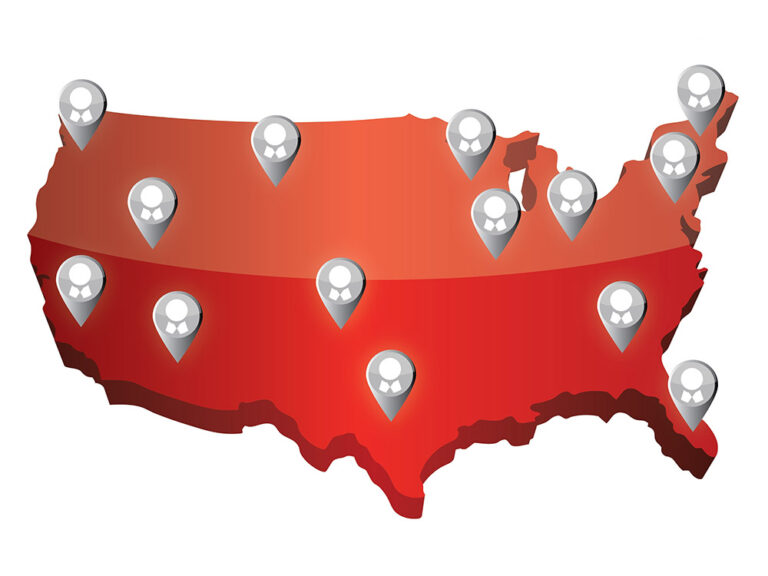Problems can occur when retailers wrongly believe they are exempt from a sales tax. Today we’ll look at 9 common sales tax myths that can get retailers in trouble.
Retailers with an ecommerce presence have a lot of responsibilities on their plates, especially the tasks of properly tracking and applying sales tax and filing annual, quarterly and monthly taxes. However, for companies selling in the United States, complex state legislation can confuse even the savviest online merchant. This can cause a vendor to be in danger of an sales tax audit, including penalties and fines.
Sales Tax Myths
#1: Reselling a Previously Taxed Item Does Not Incur Sales Tax
Unfortunately, for retailers that deal in reselling “used” items, such as car dealers or department stores, sales tax is not only collected at the time of the purchase, it must also be collected from the consumer who purchases the item if the item is unchanged. That turns the retailer into a reseller, and a resale certificate is required to avoid paying sales tax again. While most companies are aware of this rule, new companies, international sellers and individuals need to beware this myth.
If, however, massive changes have been made to the product, the seller is considered a “manufacturer” and sales tax is not required again.
#2: No Nexus Means No Sales Tax
Generally, this is true: as long a company does not have an established nexus or physical presence in a state, sales tax is not required. However, if you chose to use Fulfillment by Amazon (FBA), you will be liable for these taxes in any state where Amazon has a nexus. Amazon is continually building warehouses, so you need to be extremely watchful if you use FBA services.
#3: Uncollected Online Sales Tax Is a Burden on States
As we’ve discussed in several articles, states are claiming that uncollected sales taxes from online sales are hurting state budgets. But it appears that might not be accurate. NetChoice.org, an ecommerce organization with members such as Facebook, Yahoo! and eBay, claims that, “States are enjoying some of the largest revenue increases in recent history and are discussing ways to ‘cut’ state taxes.” As we reported a few months ago in “Sales Tax on Consulting Services,” while not every state has bounced back from the recession of 2008, many have, even while arguing that they have a budget shortfall. This issue certainly will be up for debate among the 2016 presidential candidates, as well as all around the country this election. Ecommerce retailers would do well to keep an eye on how the election affects issues such as sales tax shortfall.
#4: International Sellers Are Exempt From U.S. Sales Tax
As we discussed in our last article, most states do not recognize the international treaty agreements that the Federal government has signed. International sellers are beholden to the same rules of state and local taxes as any other seller, one of the most common sales tax myths.
#5: Audits Ruin Companies
When a company is selected for an audit by a specific state’s Department of Revenue, they should not panic. What is an audit? States want to ensure that retailers have collected and filed the correct sales and use tax to get every penny for their budgets, as well gathering information on businesses and the marketplace.
For retailers, an audit is merely a formal examination ensuring that companies are filing their taxes properly, leaving no unpaid taxes. However, if a retailer is operating as a sole proprietor rather than a corporation or an LLC, improper reporting can result in heavy fines, penalties and back taxes that bring severe financial consequences Having the proper business structure is very important for an online retailer.
#6: Services Do Not Warrant Sales Tax in the U.S.
If only this were true! Laws have been changing in states all over the country regarding the collection of sales tax on what has been traditionally labeled as consulting services. The “tangible personal property” rule of sales tax does not always apply. Not only are new taxes are being levied but in some states, tax exemptions on certain services are being removed. California, Pennsylvania, Idaho and Washington State have all entertained these changes. Even if laws have not changed in a particular state, this may be a new trend that is emerging. Learn more about sales tax on services.
#7: Retailers Are Covered Once They Understand State Sales Tax
While it’s important for ecommerce retailers to understand sales tax laws on a state-by-state basis, it’s also important to acknowledge that local taxes can affect sales tax rates as well. Additionally, excise tax, restocking fees and refunds, FBA, nexus, affiliate laws and other issues all impact the amount of tax vendors are required to collect. Retailers must be aware of all their tax liabilities, regardless of state or location.
#8: Sales Tax Is Only the Customer’s Responsibility
Yes, the customer does pay the sales tax but in the event that it is not collected or falls short, the business is liable for remitting the correct tax, plus fines and penalties, in states where applicable. This is why it is imperative for retailers to understand the intricacies of nexus and FBA rules.
Additionally, customers have taken to suing companies when sales tax is overcharged on an item. Some states protect companies. For example, the courts in Ohio (source no longer available) ruled in 2008 that customers cannot sue businesses for improper sales tax, but must apply to the state for a refund. However, just last year, a customer filed a lawsuit in Florida against BJ’s Wholesale Club, Inc. for a sales tax overcharge of $37.80 and sued them under Florida’s Deceptive and Unfair Trade Practices Act. Lawsuits like this seem to be cropping up more often, making it clear that retailers need to be as responsible as they can be for accurate sales tax collection.
#9: Software Downloads Are Not Taxable
That’s not necessarily true. Many states have added sales tax to downloadable products, by defining them to be the same as tangible personal property. Additionally, cloud based software or services may be considered taxable as well.
Retailers need to understand when cloud based computing and Software as a Service (SaaS) is taxable.
Retailers must not let these sales tax myths interfere with accurate knowledge about proper sales tax collection and reporting. A trustworthy accountant, robust accounting software and a keen eye on the latest news in sales tax legislation around the U.S. are important for to protect online vendors from sales tax liability.






